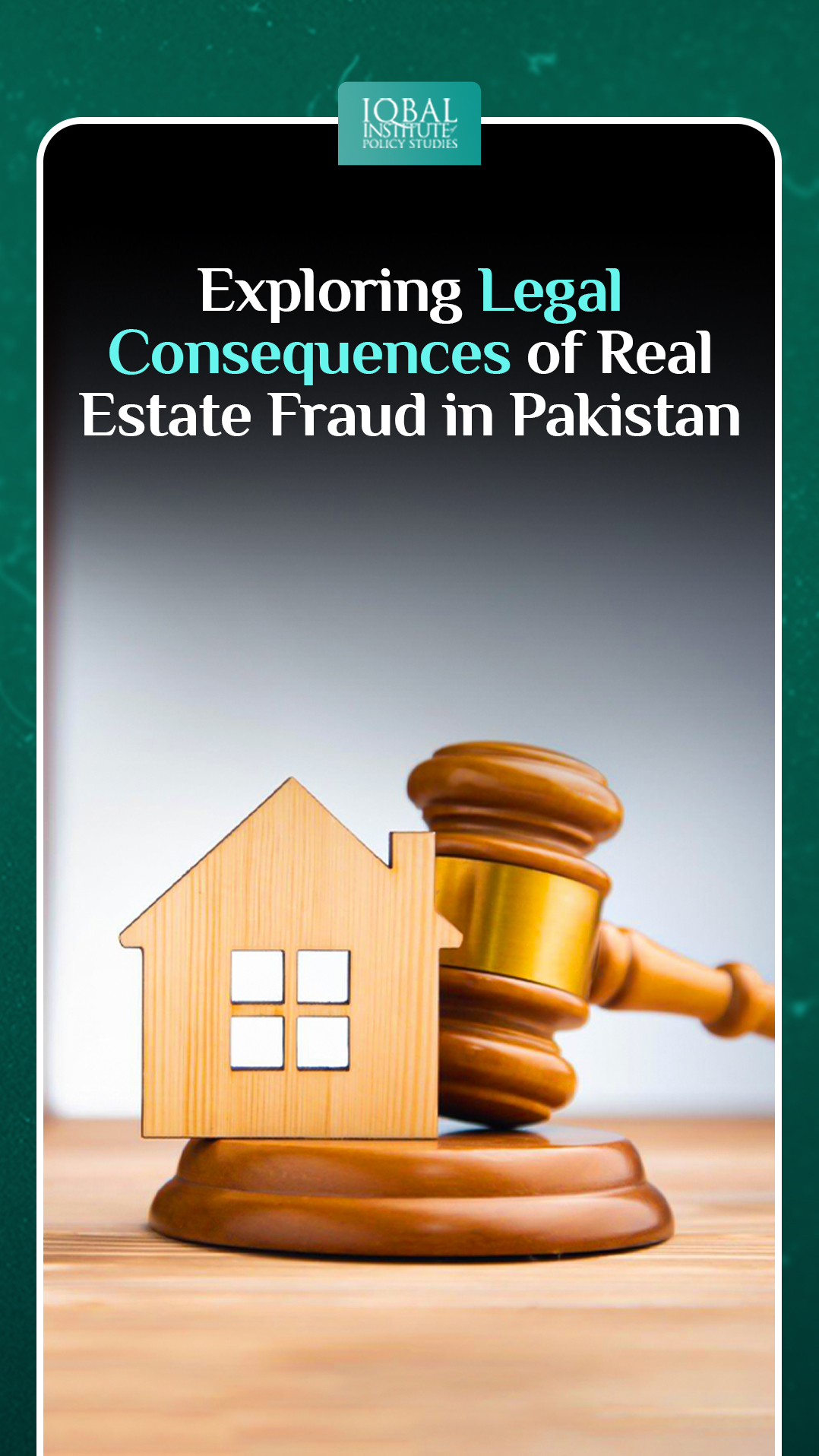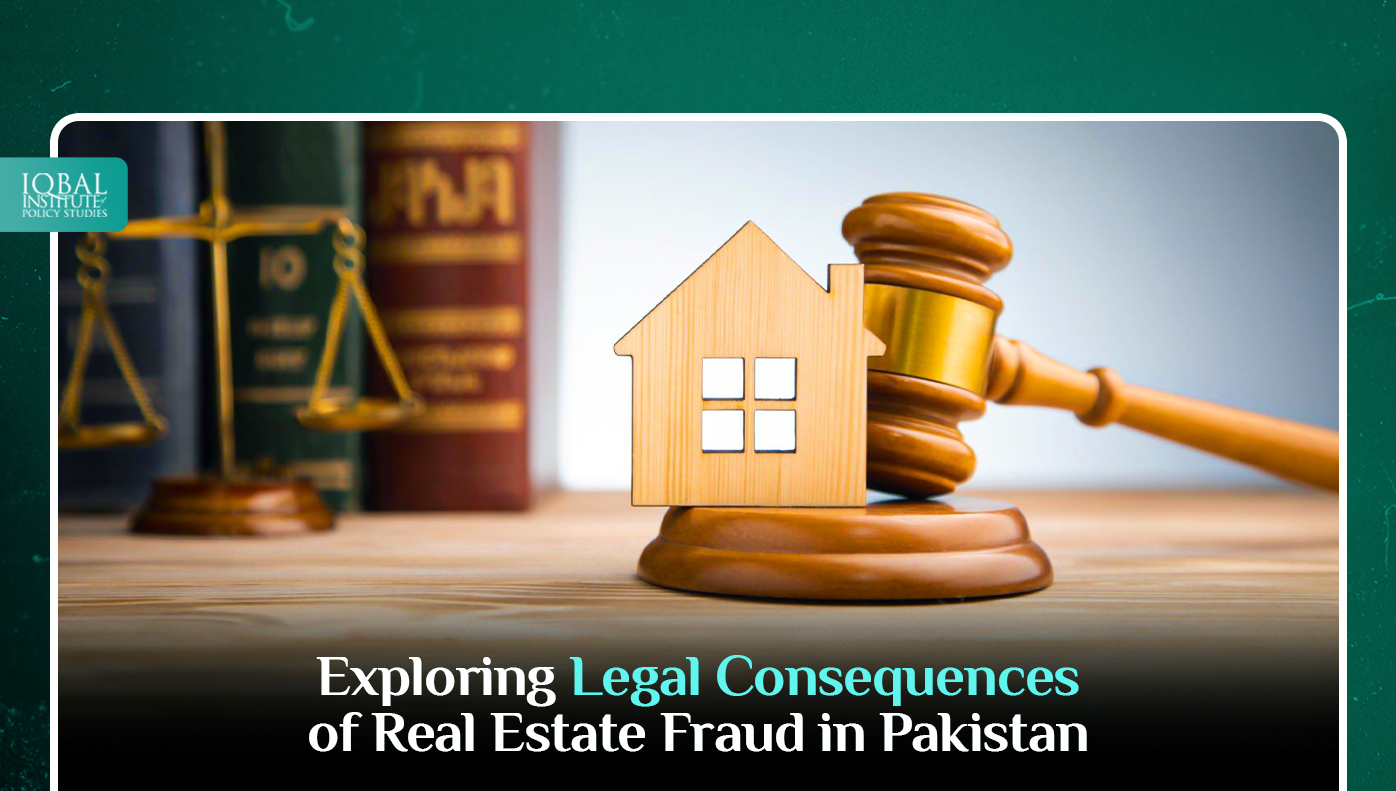Real estate transactions serve as the lifeblood of economic activities in Pakistan, captivating a diverse range of stakeholders, from investors and developers to homebuyers. However, this dynamic sector is not impervious to the clandestine world of fraudulent practices that can compromise the interests of unsuspecting parties. This comprehensive exploration delves into the intricate legal ramifications surrounding fraudulent activities in Pakistan’s real estate deals. By shedding light on the consequences and offering detailed insights into preventive measures, this analysis aims to empower stakeholders with the knowledge needed to navigate the complex landscape of real estate transactions.
Understanding Real Estate Fraud
Understanding real estate fraud in the context of Pakistan is essential for anyone involved in property transactions. Real estate fraud is a multifaceted issue that takes various deceptive forms, posing a substantial threat to the integrity of real estate dealings. From the deliberate misrepresentation of critical property details to the forgery of documents, undisclosed property issues, and deceptive sham transactions, the landscape is rife with potential pitfalls for unsuspecting stakeholders. Recognizing the intricacies of these fraudulent practices is crucial for safeguarding investments and preserving the overall health of the real estate market. The deceptive tactics employed by fraudsters often exploit vulnerabilities in the system, making it imperative for stakeholders to stay informed and vigilant. A nuanced understanding of real estate fraud not only enables individuals to identify scams but also empowers them to take proactive measures to mitigate risks. In this complex environment, education and awareness become powerful tools, serving as the first line of defense against unscrupulous activities that could otherwise lead to financial losses and legal entanglements. Therefore, a comprehensive grasp of real estate fraud is an indispensable asset for anyone navigating the intricate landscape of property transactions in Pakistan.
Legal Framework in Pakistan
Navigating the legal terrain of real estate transactions in Pakistan demands a nuanced comprehension of both civil and criminal laws. The Transfer of Property Act, 1882, and the Registration Act, 1908, lay the foundational groundwork for property transactions. Simultaneously, the Penal Code, 1860, intricately addresses the criminal aspects of fraud within this domain. This comprehensive legal framework establishes the rules and regulations governing the buying and selling of real estate, providing a robust foundation for understanding the rights and responsibilities of all involved parties. It is essential for stakeholders to grasp the intricacies of these laws to effectively navigate the complex landscape of real estate transactions.
Civil Remedies
In the unfortunate event of falling victim to real estate fraud, individuals in Pakistan have recourse to civil remedies through the judicial system. This may involve filing a lawsuit seeking damages, rescission of the contract, or specific performance. The pursuit of civil remedies is a nuanced and complex process, necessitating the expertise of legal professionals well-versed in the intricacies of property law. The goal is to ensure a fair and just resolution that addresses the unique circumstances of the fraudulent transaction.
Criminal Consequences
Perpetrators of real estate fraud in Pakistan face the looming specter of criminal charges under various sections of the Penal Code, including forgery, cheating, and criminal breach of trust. The intricate role of law enforcement agencies in investigating and prosecuting these offenses adds a layer of complexity to the legal landscape. Penalties for convicted individuals can range from fines to imprisonment, underscoring the gravity of fraudulent practices within the real estate sector. The intersection of civil and criminal consequences serves as a potent deterrent, emphasizing the need for strict adherence to legal and ethical standards in real estate transactions.
Preventive Measures
Preventing real estate fraud is not only crucial but also requires a proactive approach from stakeholders in Pakistan. Mitigating the risk of falling victim to fraudulent practices involves a combination of thorough due diligence, meticulous verification of property documents, and the engagement of reputable real estate agents and lawyers. Fostering a culture of diligence and awareness within the industry is paramount. This entails implementing best practices, staying abreast of evolving legal frameworks, and leveraging technology for enhanced verification processes. By adopting these preventive measures, stakeholders contribute to the creation of a more robust and trustworthy real estate environment.
Role of Regulatory Bodies
Regulatory bodies, such as the Securities and Exchange Commission of Pakistan (SECP) and the Federal Board of Revenue (FBR), play a pivotal role in overseeing and regulating the real estate sector. Understanding the functions and mandates of these bodies is crucial for stakeholders seeking an additional layer of protection for their investments. Regulatory frameworks act as a safeguard, promoting transparency and accountability within the real estate industry. Collaborating with these bodies, leveraging their services, and actively participating in regulatory initiatives contribute to the overall health and integrity of the real estate market in Pakistan.
Conclusion
As Pakistan’s real estate market undergoes continual evolution, the imperative for vigilance against fraudulent practices becomes increasingly critical. Understanding the legal ramifications and adopting comprehensive preventive measures empower stakeholders to navigate the real estate landscape with greater confidence. This proactive approach not only ensures the integrity and sustainability of the sector but also fosters an environment where genuine transactions can thrive, and the interests of all parties are safeguarded. By embracing a multifaceted strategy that encompasses legal acumen, regulatory collaboration, and continuous learning from past experiences, stakeholders contribute to the resilience and vitality of Pakistan’s real estate market.
This article is written by Radma Nouman. Radma is a research analyst at the Iqbal Institute of Policy Studies (IIPS).



Leave a Reply